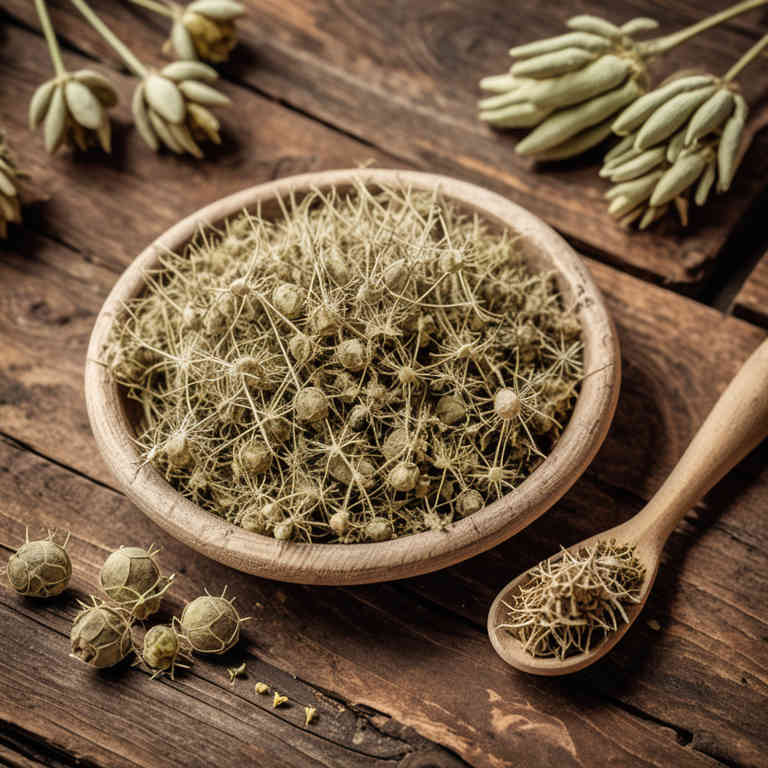Tribulus terrestris mucillage for medicinal use

Tribulus terrestris mucillage is a viscous, sticky substance derived from the plant Tribulus terrestris, commonly known as puncture vine.
This preparation is obtained by extracting the mucilage, a gel-like polysaccharide, from the seeds or stems of the plant. In herbalism, it is used for its potential soothing and demulcent properties, which can help alleviate irritation in the digestive tract. It is often employed to support gastrointestinal health and may be used in formulations for conditions like ulcers or inflammatory bowel issues.
However, its use is less common compared to other parts of the plant, which are more widely utilized in traditional medicine.
Uses
Tribulus terrestris mucillage has been used to enhance vitality and support reproductive health for centuries, particularly in Ayurvedic and traditional Chinese medicine.
Historically, it was valued for its purported ability to boost libido and improve physical performance, often used by athletes and warriors. In modern contexts, it is popular as a dietary supplement, marketed for its potential to increase testosterone levels and improve athletic endurance. Scientific research on its efficacy remains inconclusive, with some studies suggesting minor benefits while others show no significant effects.
Despite its traditional roots, the mucilage's role in contemporary herbal medicine continues to be a subject of both interest and debate.
Benefits
Tribulus terrestris mucillage has health benefits such as enhancing libido, supporting cardiovascular health, and promoting urinary tract function.
This herbal preparation is known for its rich content of saponins, which may help in improving testosterone levels and overall vitality. It is also believed to have anti-inflammatory and antioxidant properties that contribute to its therapeutic effects. Tribulus terrestris mucillage is commonly used in traditional medicine to support reproductive health and enhance physical performance.
Its mucilage content may also aid in soothing the digestive system and improving overall gut health.
Constituents
Tribulus terrestris mucillage active constituents include saponins, alkaloids, flavonoids, and mucilage.
These compounds are believed to contribute to the herb's potential health benefits, such as enhancing physical performance and supporting hormonal balance. Saponins may help in improving kidney function and reducing cholesterol levels. Flavonoids are known for their antioxidant properties, which can protect cells from oxidative stress.
Alkaloids may have stimulant effects and could support overall vitality and energy levels.
Preparation
To make Tribulus terrestris mucillage, start by collecting fresh or dried Tribulus terrestris plant material, ensuring it is free from contaminants.
Wash the plant thoroughly and chop it into small pieces to increase surface area for extraction. Place the chopped plant in a pot and add enough water to cover it by about an inch. Bring the mixture to a gentle simmer over medium heat, allowing the mucilage to dissolve into the water.
Strain the liquid through a fine mesh or cheesecloth to collect the mucilage-rich extract, which can then be used as needed.
Side Effects
Tribulus terrestris mucillage may lead to gastrointestinal discomfort, including nausea, vomiting, and diarrhea, due to its high mucilage content.
It can also cause allergic reactions in individuals sensitive to plants in the Cucurbitaceae family. Long-term use may interfere with hormone levels, potentially affecting testosterone and thyroid function. Some studies suggest it might increase the risk of kidney stones due to its oxalate content.
Additionally, it may interact with medications, particularly those affecting the liver or blood pressure.